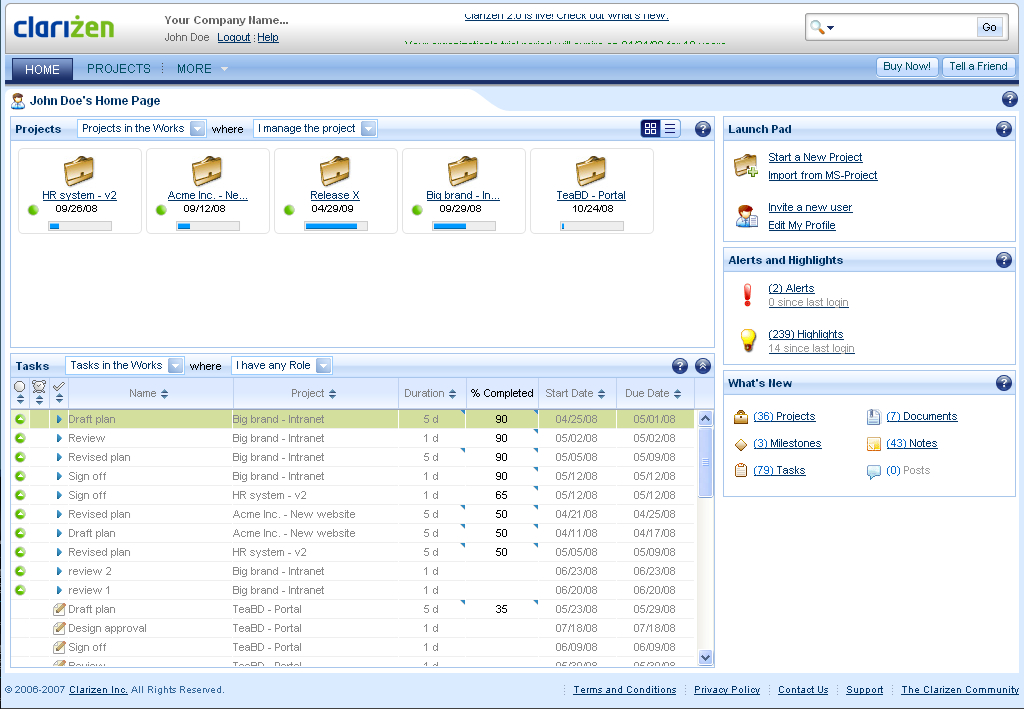Project execution gets more social with Clarizen

Project management is an art rather than a science and that software to manage projects exhibity many problems. Clarizen hopes to change that with version 2.0 of its service. Rather than concentrate on project creation and forecasting (which never goes to plan), Clarizen attempts to keep projects on track by managing the execution element from a people rather than task oriented approach.
Rather than compete directly with Microsoft Project, Clarizen hopes to appeal to a much broader audience than the usual tech centered suspects. According to CEO Avinoam Nowogrodski:"We see a wider variety of potential customers outside IT or professional project managers. We're thinking of marketers and manufacturers who need to work in teams but don't necessarily need the cost or complexity of a Microsoft Project."
Sarah Perez recently wrote a comprehensive round up of the new features. I'm more concerned about usability and adoption.
Clarizen has its own internal ProjectMail feature that allows users to notify others about progress and to receive updates outside the application. This means some users need never touch the app and so don't need to pay for its use, which at $50 per month is fine for small teams but becomes uncompetitive once you get beyond say 20 users. Today, pricing across many of these types of application is in what I would call 'early adopter' stage so while Clarizen is attractive, it will need to figure out a business model that allows for negotiation in large rollout situations. The company says that today, it is looking for those companies that can progressively roll out the application. ProjectMail is part of that strategy, allowing users to 'sniff' the application before they buy. While there is no 'freemium' model, there is a 30-day trial. That should be enough for people to get a good idea of what Clarizen can do for their business.
Many of the features are very easy to use, a big plus for software that can get very complicated, very quickly. I like for instance that users can easily attach notes to tasks, that it has a wiki feel and that managers who need reports can export to Excel. It may seem trivial but these are the small things that matter when thinking about adoption.
Clarizen contains the basics needed to make collaborative project working less of a chore. It has the potential to spread across value chains but I wonder the extent to which different organizations will be willing to give up their existing tools for this kind of service. It is a natural for vendors like Microsoft to venture into and I suspect that once we see more vendors invading their space, then we can expect to see a wave of consolidation.
Some industries like realty and construction management would be ideal candidates for this type of application. However, to get the best utility, they'd need to have the service embedded into billing processes. That is something the ERP players like Agresso have already done with significant success. Offering this level of integration at the SMB market would be a considerable advantage, especially as Clarizen is a clear step up the ladder from Basecamp and HighRise.
In the meantime, Benchmark Capital and Carmel Ventures think Clarizen has enough potential to throw $7 million at the company. Clarizen has 150 paying companies, including Qualcomm and registered 4,000 customers. That's a good achievement gien the company was founded in 2006 and operates in a market that only has one brand of significance.
